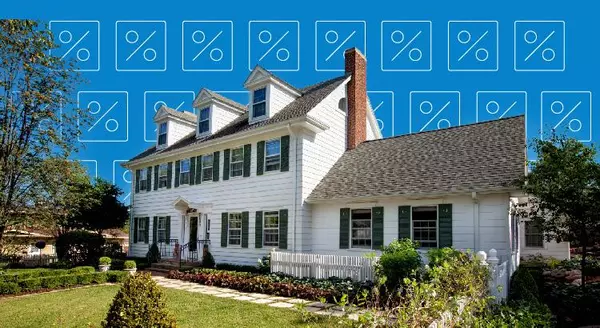How Much Home Equity Have You Gained? The Answer Might Surprise You
Have you ever stopped to think about how much wealth you’ve built up just from being a homeowner? As home values rise, so does your net worth. And, if you’ve been in your house for a few years (or longer), there’s a good chance you’re sitting on a pile of equity — maybe even more than you realize.What Is Home Equity?Home equity is the difference between what your house is worth and what you owe on your mortgage. For example, if your house is worth $500,000 and you still owe $200,000 on your home loan, you have $300,000 in equity. It’s essentially the wealth you’ve built through homeownership. Right now, homeowners across the country are seeing record amounts of equity.According to Intercontinental Exchange (ICE), the average homeowner with a mortgage has $319,000 in home equity.Why Have Homeowners Gained So Much Equity?The rise in home equity over the years can be credited to two key factors:1. Significant Home Price GrowthHome prices have climbed dramatically in recent years. In fact, according to the Federal Housing Finance Agency (FHFA), over the past five years, home prices nationwide have risen by 57.4% (see map below):This appreciation means your house is likely worth much more now than when you first bought it.2. Longer Tenure in HomesData from the National Association of Realtors (NAR) shows people are staying in their homes for a decade (see graph below):This increased tenure means homeowners benefit even more from home values growing over time. That’s because the longer someone has lived in their house, the more that home’s value has grown, which directly increases equity.And if you’re one of those people who’s been in their home for 10 years or more, know this – according to NAR:“Over the past decade, the typical homeowner has accumulated $201,600 in wealth solely from price appreciation.”The Benefits of Having Home EquityWhat does that mean for you? It means your house might be your biggest financial asset — and it could open up some exciting opportunities for your future. Let’s break it down.Moving to Your Next Home Your equity could help you cover the down payment for your next home. In some cases, it might even mean you can buy your next house all cash.Financing Home ImprovementsThinking about upgrading your kitchen, adding a home office, or tackling other projects? Your equity can provide the funds to make those improvements happen, increasing your home’s value and making it more enjoyable to live in too.Getting a Business GoingIf you’ve been dreaming about starting your own business, your equity could be the kickstart you need. Whether it’s for startup costs, equipment, or marketing, leveraging your home’s value can help bring your entrepreneurial goals to life.Bottom LineWhether you’re thinking about selling, upgrading, or simply want to understand your options, your home equity is a powerful resource. If you’re wondering how much equity you’ve built or how you can use it to meet your goals, connect with a local real estate agent to explore the possibilities.
 $630,0003 Beds3 Baths1,328 SqFt
$630,0003 Beds3 Baths1,328 SqFt
 $799,0003 Beds2 Baths1,344 SqFt
$799,0003 Beds2 Baths1,344 SqFt
 $7,2003 Beds4 Baths2,778 SqFt
$7,2003 Beds4 Baths2,778 SqFt





